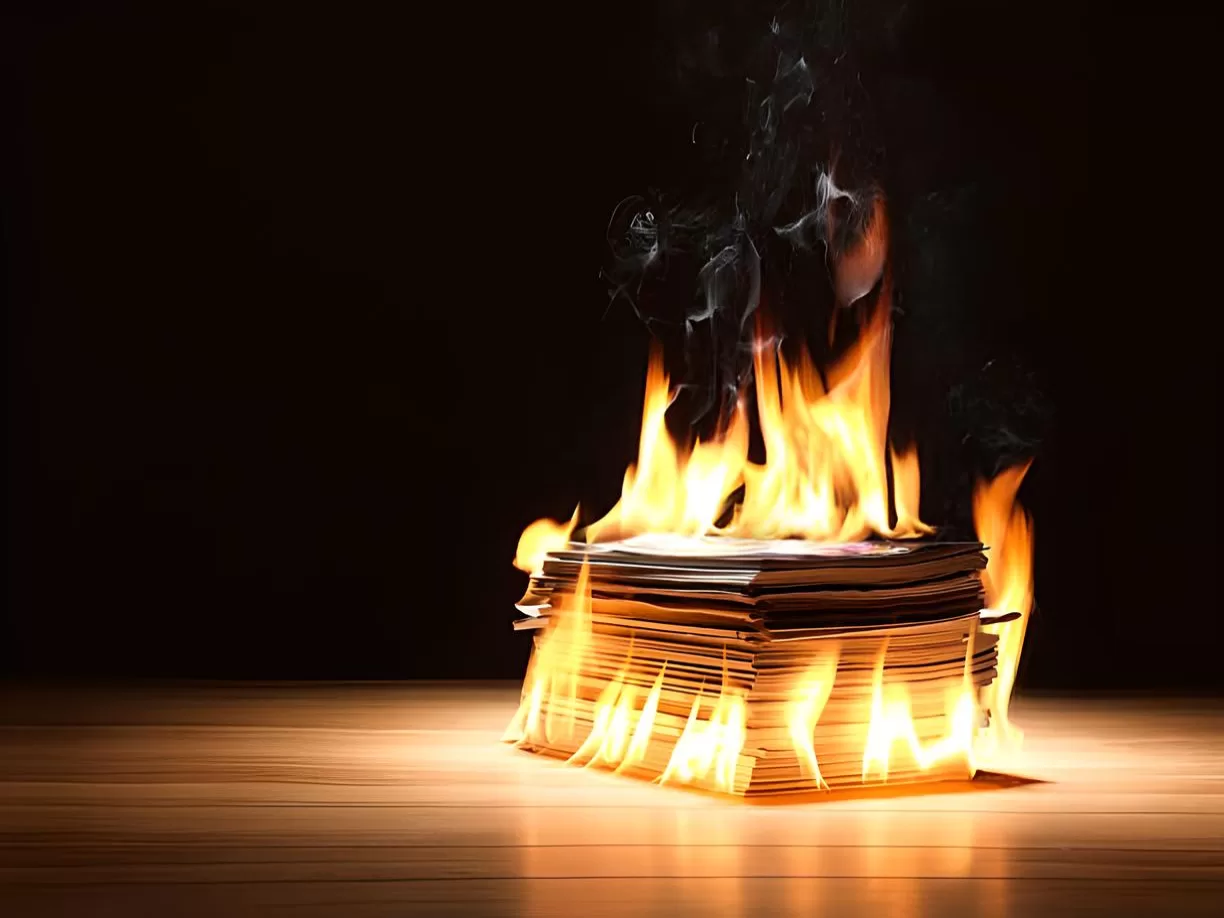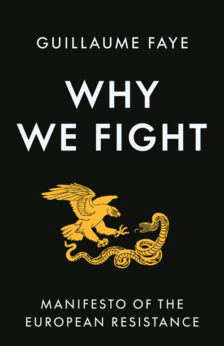A recent article here elaborated on the existential crisis that has been affecting the US media with mounting vehemence. However, it is not just the US media that are going through a crisis. The European media are affected by the same phenomena. This can be clearly observed by focusing on the Netherlands.
Once upon a time, just like the US media landscape, the Dutch one was diverse and varied. We are talking here about the 1980s. Such was the case all over Western Europe, where one could find practically the entire political spectrum represented on newsstands. Only far-right publications were hard to find, for the simple reason that these were few and far between. But those of what was considered to be the far left were easily available. Not only l’Humanité and l’Unità, organs of, respectively, the French and Italian Communist Parties, but the Dutch Communist Party daily De Waarheid (Truth) as well. Even the Soviet Communist Party newspaper Pravda could be bought in the Netherlands, and on a daily basis.
Now that the glorious days of the printed daily newspaper are over, of course no Russian dailies can be bought anywhere in the Netherlands nor elsewhere in the European Union. Moreover, the unelected EU Commission has decreed that, in order to protect European citizens from “hate speech,” “disinformation” and “fake news,” they cannot even have access to Russian news outlets on their computers, tablets and cell phones. Yes, it’s called censorship! It has returned to Western Europe and it is alive and kicking, just as in Hitler’s Germany, Stalin’s Soviet Union and the German Democratic Republic. Compared to the EU today, the 1980s seem an idyllic era of almost unfettered freedom of speech.
In those years, it was still possible for Dutch writer Gerrit Komrij to publish Lof der Simpelheid (In Praise of Simplicity, 1988) in which one chapter was called “Plea in favor of the Smoking Racist.” Komrij savagely attacked the concept of political correctness and its defenders and practitioners, arguing that freedom of speech was sacred and necessary for any healthy society. In those days, there was still humor and there were no taboo subjects. Indeed, few things are potentially so funny and so ideal as the butt of jokes as taboos. No longer. True humor has been on the retreat ever since the 1990s and today can only still be found in the hidden corners of the internet or in the form of whispered jokes among old and trusted friends.
By the end of the 1990s, as the internet was beginning to grow and develop, newspapers began to get some competition from websites. At the rate that — after the fall of the Berlin Wall — the legacy media became increasingly politically correct, these alternative media started to develop.
Among the first of these in the Netherlands was Kleintje Muurkrant (Junior Wall Newspaper), founded in 1998, as an extension of a regional anarchist squatter’s publication, Kleintje soon became the go-to source for alternative news and info on the true functioning of Dutch state, business and society. Operating in the best tradition of muckraking journalism, Kleintje showed it to be a sleazy environment rife with corruption, where the elites (including the Dutch royal family) are intimately connected with the underworld. Well hidden from the public view, of course.
In 2000, Dutch filmmaker Theo van Gogh (reportedly assassinated by the Dutch secret service in 2004) founded another website dedicated to the uncovering of corruption in its varied forms: De Gezonde Roker (the Healthy Smoker). In 2004 journalist Micha Kat, belonging to the small group of van Gogh’s friends and associates, published a book on the decay of the newspaper he had been working for, NRC-Handelsblad, considered to be the Dutch quality newspaper, the “paper of record.” In a pun on the paper’s motto of Lux et Libertas (Light and Liberty), the book carried the title Lux, Libertas en Leugens (Light, Liberty and Lies), and provided a wealth of juicy and embarrassing details on the extensive corruption of the paper, its professional standards and of the private lives of its journalists. As such, in a sense it prefigured the book by German journalist Udo Ulfkotte (Gekaufte Journalisten, or Bought Journalists, 2014). Naturally, we knew all along that the newspaper world was riddled with corruption, since Guy de Maupassant published Bel Ami in 1885.
Other new alternative outlets from the early years include the news blog Geenstijl (2003), still alive and enjoying a broad popularity. This is understandable, because it has gone politically mainstream, faithfully reflecting and echoing Dutch state propaganda, albeit in a satirical garb.
After 2004, Micha Kat, the “Dutch Julian Assange,” founded his own channel, Klokkenluideronline (Whistle Blower Online), which soon became the most important and most influential dissident outlet in the Netherlands. As a result and because of his activist tendencies (Kat would stand outside government buildings, call out misdeeds and ask for explanations, through a megaphone), Kat was repeatedly arrested. A few years ago, he was arrested in Northern Ireland, extradited to the Netherlands and thrown in jail after a conviction on the basis of trumped up charges. On February 22, 2024, his two-year prison term was scheduled to end. However, Dutch justice being what it is, one never knows.
Other noteworthy alternative and dissident media from that period include Anarchiel and the anti-monarchist and slightly high-brow but nonetheless influential website Prorepublica, both no longer active. There was also Argusoog (Argus Eye), whose pioneering podcasts (Argusoog radio) were quite influential and remarkable.
Today, the Dutch media landscape is radically different from what it was twenty years ago. About 90% of all Dutch outlets are owned by Belgian conglomerates, namely DPG Media (owned by the Van Thillo family), Mediahuis and the smaller firm Roularta. As a result, all newspapers in the Netherlands are now virtually indistinguishable from each other, often even carrying identical titles and articles. Needless to say, all these media faithfully spread state propaganda. This boils down to Agenda 2030, climate lunacy, gender lunacy and wokism. And it includes hefty doses of Russophobia, in the form of steady streams of anti-Russian hate speech, fake news and disinformation. Essentially, the media are mouthpieces for the US, NATO, the EU, and a select number of NGOs.
As is the case everywhere, since the further maturing of the internet, newspaper readership has been dropping steadily and will continue to do so at ever faster rates. It is not difficult to predict the disappearance of many newspapers, as has already been the case in the US over the past few years. Seven years ago, NRC-Handelsblad still claimed 200,000 subscriptions, but in all likelihood this number may be closer to 150,000 today. The once widely read, highly influential progressive and even muckraking weekly newspaper Vrij Nederland (circulation over 100,000 in the 1980s) is now left with only 6,000 subscribers and is clearly moribund.
The decline of the printed press is also observable in the heavily feminized publishing industry, where cookbooks, chick lit and bestsellers take precedence over non-fiction, novels and poetry. Only a handful of publishers, run by men, dare to publish titles near the edge of what is considered permissible and even beyond that limit: Amsterdam Books (run by the FvD party), Papieren Tijger, Blauwe Tijger, and Aspekt.
As for audiovisual media, these are largely under government control by means of a rather intricate set-up. Together with the newspapers, radio and especially television are the mainstay of the state propaganda apparatus. Associations with a required minimum of members may apply for admission, but there are tight controls for the content of their broadcasts. Thus ON (Ongehoord Nederland, Unheard Netherlands), a right-wing nationalist group, has been admitted, but it faces continuous interference because of not being “inclusive” or spreading “hate speech.”
ON is one of a small group of barely officially tolerated, ideologically comparable outlets, including De Andere Krant (The Other Newspaper) founded in 2018, with 12,000 subscribers as of today, the magazine Gezond Verstand (Sound Mind), founded in 2020, with a circulation of 100,000 and the video channels BLCKBX (170,000 followers on YouTube, and also present on Rumble, Odyssey and others), as well as the political party FvD (180,000 followers on YouTube, with its popular video Forum Inside), Café Weltschmerz (130,000 followers on YouTube) and De Nieuwe Wereld (100,000 followers on YouTube).
Among dissident websites that provide non-mainstream news and analysis, all of which are decried for being outlets for “conspiracy theories,” “fake news” and “disinformation,” the most influential and solid ones are Ninefornews, Dissidentone, Frontnieuws, and Robscholtemuseum, as well as the smaller sites Reactionair.nl, Niburu and the one run by Martin Vrijland.
It is plainly obvious that the world of media is undergoing what amounts to what must be called an existential crisis. The traditional system, such as it was still functioning until recently, is breaking down, prompting men like Barack Obama and Justin Trudeau to give vent to their despair. The attendants of this year’s World Economic Forum meeting at Davos resolved to take measures to combat alternative media and to reclaim legacy media’s monopoly on truth. It seems their fight to rebuild trust is an uphill battle, because trust arrives on foot but leaves on horseback. But perhaps they mean the kind of trust one gets from a person while holding a gun to his head.
One thing is certain, however: precious few Smoking Racists still remain out there. Smokers have been persecuted somewhat like Jews in Nazi Germany and seem practically extinct. Racists, on the other hand, seem to be more numerous than ever, but most are not the racists of yore. The true modern racist is a politically correct racist, and respects gender diversity, believes in anthropogenic climate change, supports Agenda 2030 and all SDGs. The modern racist condemns smoking, hate speech, disinformation and fake news. The modern racist is politically correct and just hates white males. Even if he is one himself.







